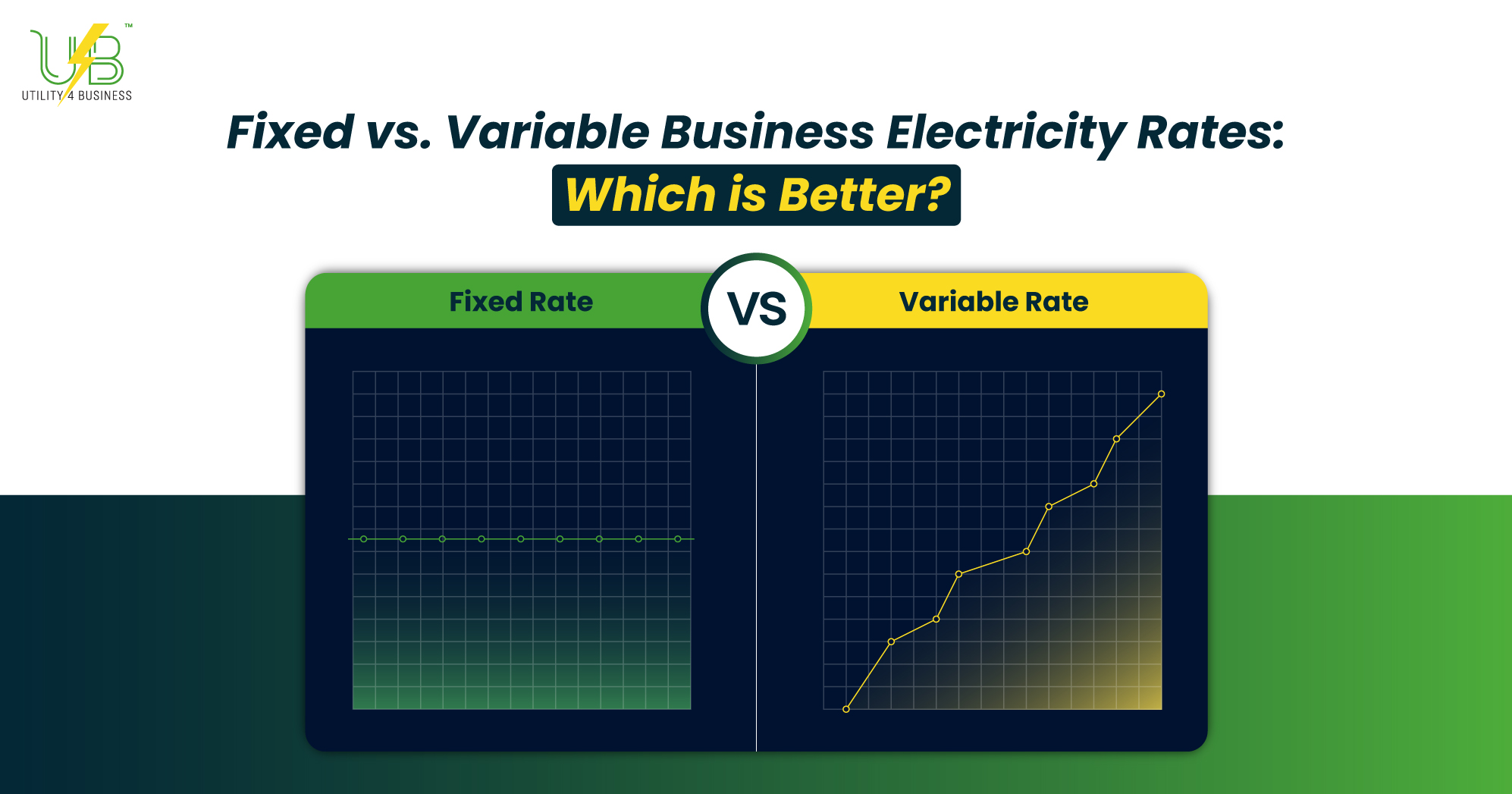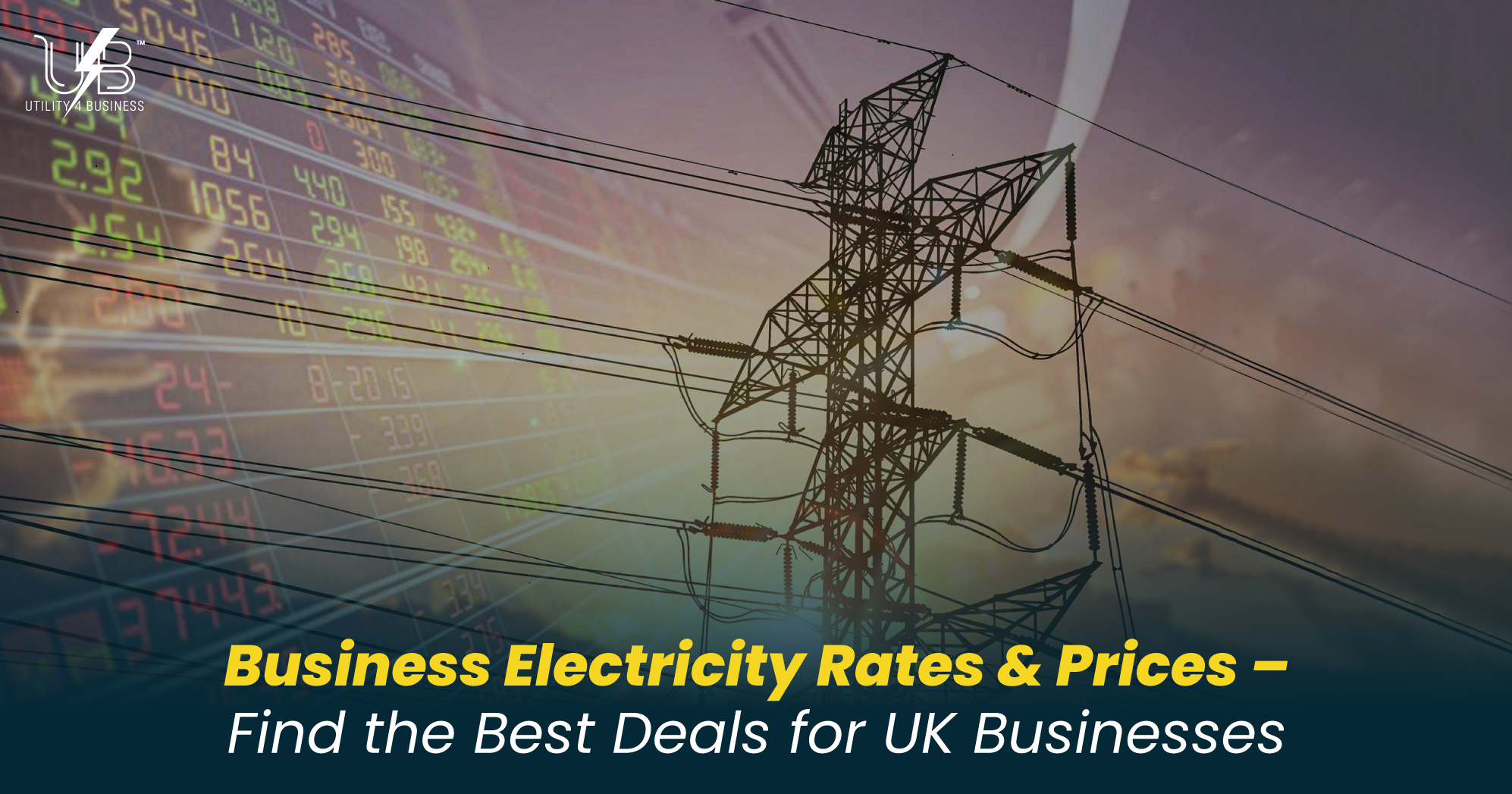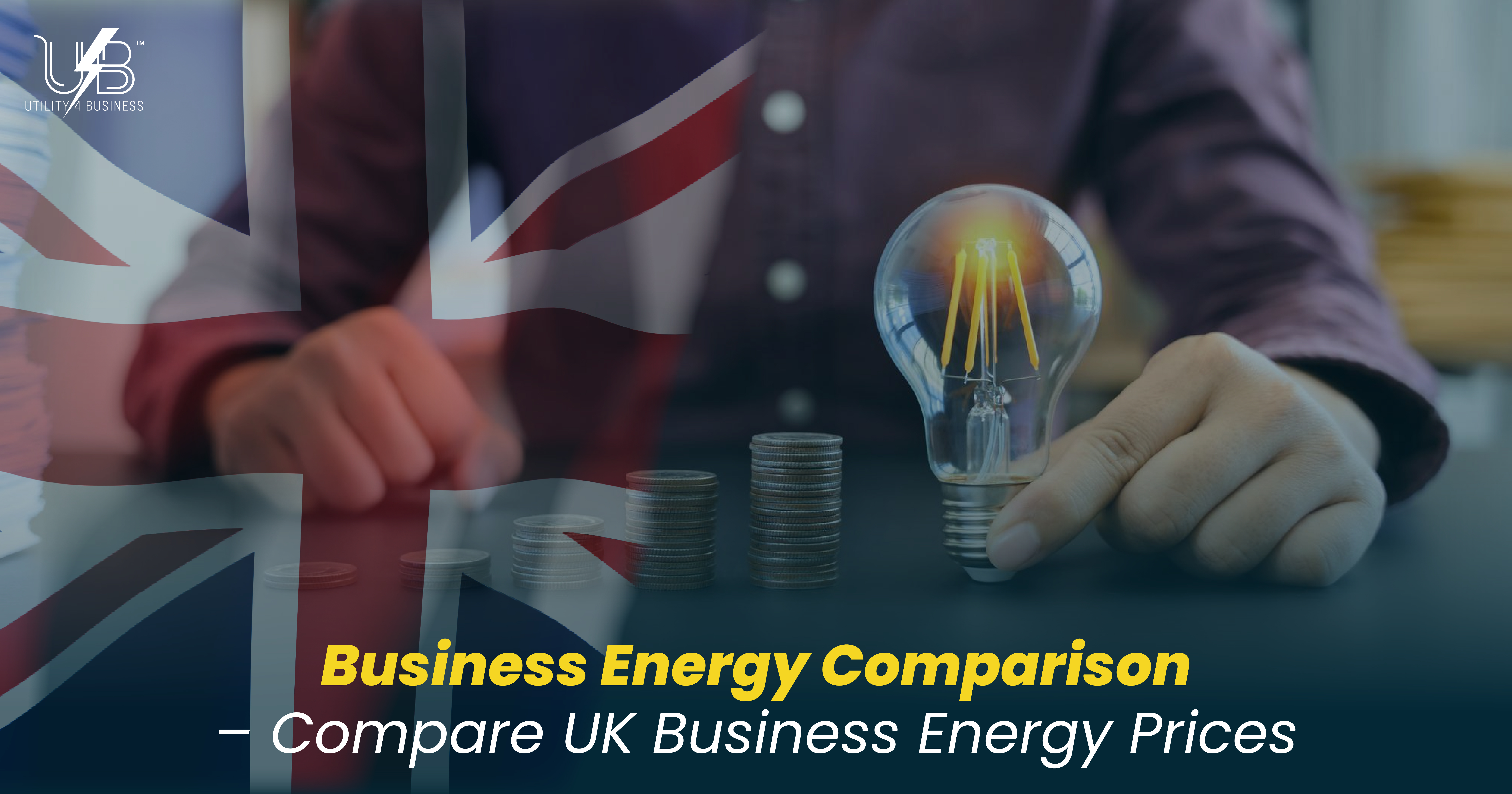Fixed vs. Variable Business Electricity Rates: Which is Better?
Save Money: Business Energy Rate Guide for 2025

Are you scratching your head every time a new power bill lands on your desk? You’re not alone. Business electricity rates keep shifting, and that churn can leave even seasoned owners guessing about next month’s costs. Picking the right deal matters because energy now eats a bigger slice of overhead than ever—some firms pay more than 25 p/kWh in 2025, nearly triple what they spent only a few years ago.
Fixed electricity rates
Fixed plans let you lock one set price for every kilowatt-hour—often for 12, 24, or 36 months. Suppliers base that number on wholesale costs the day you sign. Because the price never moves, you know exactly what each unit of power will cost over the whole contract.
That steady number makes it easy to plan budgets and guard against sudden market spikes, which have pushed spot prices above 70 p/kWh during crunch periods.
Fixed rates shine for shops, offices, and cafés that use roughly the same amount of power all year. You gain cost certainty and skip bill shocks. The trade-off? If the market dips, you stay stuck at the higher rate, and walking away early can trigger exit fees. Fast-growing firms or those whose demand swings with seasons may find the inflexibility hard to swallow.
Variable electricity rates
Variable plans ride the market. Your unit cost rises or falls month by month—sometimes even day by day—based on wholesale prices, demand, and policy tweaks. There’s usually no long contract, so you can switch at short notice and chase savings when prices slide.
The upside is clear: when wholesale rates drop, so do your bills. This can help hotels, event venues, or any business with lumpy demand. You also avoid cancellation charges if you jump ship. The risk is the flip side. Sudden cold snaps, supply squeezes, or geopolitical shocks can send prices soaring overnight, wiping out gains and wrecking budgets.
To win with a variable plan, you must watch the market, compare business electricity UK offers often, and move fast when costs trend up.
Factors that guide your choice
Business size and usage
A small design studio using 10,000 kWh a year cares more about bill stability than chasing tiny dips. A factory burning 1 GWh may save thousands by grabbing low-spot prices.
Market outlook
Wholesale electricity still sits around 20-26 p/kWh for many SMEs, but monthly swings of 20 % remain common. Analysts warn that global gas supply issues can spike prices with little notice.
Budget goals
If tight cash flow means every surprise hurts, the sure cost of a fixed deal feels safer. Firms with healthy margins may gamble on variables for extra savings.
Contract flexibility
Long-term tenants often sign multi-year fixed deals to sync with lease terms. Pop-up stores or seasonal outfits lean toward rolling variable contracts that end when they do.
Comparing costs: a quick example
Imagine a medium-sized bakery that uses 20,000 kWh per year.
With a fixed rate, the bakery pays a steady £4,800 and plans confidently. On a variable plan, it might save £400 if prices stay low, or pay £1,200 more if a winter surge hits. Early-exit fees on the fixed contract could reach £300, while the variable plan demands constant monitoring.
Which rate fits your business?
Choose fixed electricity rates when:
- You crave bill certainty (think retail and small offices).
- You run long-term, stable operations.
- You prefer easy budgeting over chasing every penny.
Pick variable electricity rates when:
- Your energy use swings with seasons or projects.
- You watch the market and can act fast.
- You can handle short-term price jumps.
Some suppliers now offer hybrid deals that split usage—part fixed, part variable—giving you a middle path. Availability changes often, so ask what’s on the table.
Practical tips for choosing a plan
- Check last year’s bills to spot usage patterns.
- Use online tools to compare energy suppliers side by side.
- Read the small print for exit fees, standing charges, and price-change notices.
- Track news on wholesale markets if you are variable.
- Talk to a broker like Utility4Business UK for free, no-obligation advice.
Conclusion
Both fixed and variable plans have clear wins and risks. The smart move is to line up your choice with how your business actually uses power, how much risk you can stomach, and where prices seem headed.
Ready to slice your energy bills? Visit Utility4Business UK today, pop in your latest meter data, and our experts will show you live deals in minutes. Lock in a great business electricity rate now and keep more profit where it belongs—in your business.
Find This Article Helpful? Share It Now!
At Utility4Business, we offer top-notch customer support and business utility solutions for businesses across the UK. Consider sharing this article and helping others discover how our expertise can add value to their business success.

Read Our Latest Posts
Explore our latest blog posts and learn how Utility4Business can support your business growth with tailored utility solutions and services. Stay ahead of the curve with the latest information from industry experts and take advantage of our user-friendly comparison services to find the best business deals.


Get Connected
At Utility4Business, our team of experts can help you figure out the highest-value business utility deals that will help your business grow over time.


